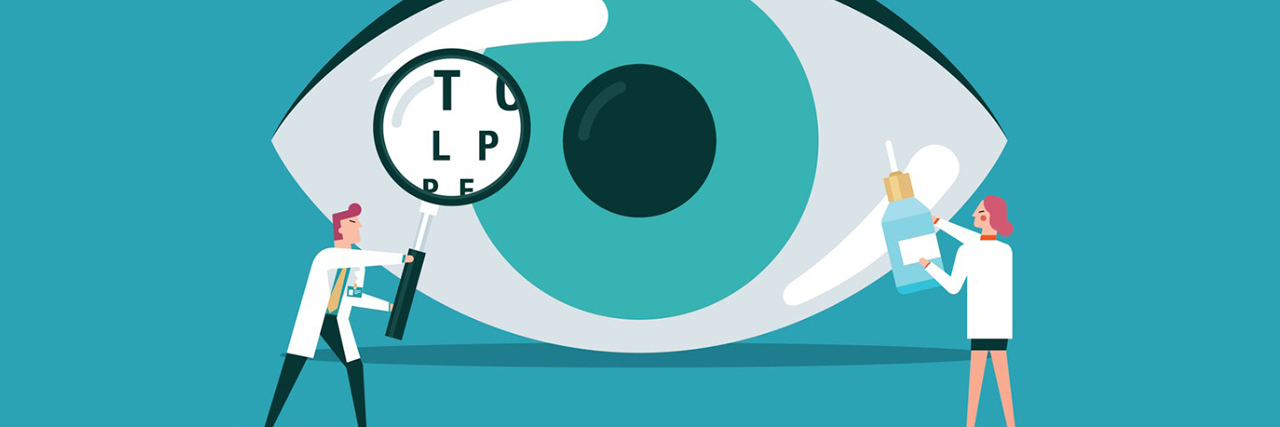Learning to live with diminished vision is no easy task. Daily errands require more planning. Regular hobbies or physical activities might suddenly pose new challenges. Without careful attention and preparation, those who are diagnosed with degenerative eye conditions such as age-related macular degeneration (AMD) or cataracts may feel frustrated, depressed or socially isolated. But there is a bright side: everybody can take concrete actions that will help them to live a fuller life after their diagnosis.
In honor of Macular Degeneration Awareness Month, Good Days collaborated with Dr. Sally Mina, a Texas-based optometric glaucoma specialist and ocular disease expert who has treated more than 30,000 people, to share three tips that support healthy vision throughout your entire life.
1. Eat for your eyes!
A healthy lifestyle can benefit people who are at risk of developing degenerative eye conditions as well as those who have already experienced conditions such as AMD-related vision impairment. Incorporating healthy eating habits is a major step toward supporting healthy vision.
Some favorite foods that ensure adequate absorption of needed nutrients are dark-green leafy vegetables like spinach, kale and collards that are full of vitamin C, vitamin E, lutein and zeaxanthin. Sweet potatoes, which are rich in vitamins A and C, support better vision too. So do beans, which are loaded with vitamin B. Finally, nuts and seeds that are high in omega-3 fatty acids, copper, zinc and vitamin E are a great choice.
There are also some foods that you should limit, like saturated fats and red meat, which may increase your risk of macular degeneration. Too much food with a high glycemic index, like white bread, rice, and pasta, have also been shown to increase the risk of developing AMD.
2. Map your approach to eye care.
If you’re experiencing vision loss from a degenerative eye condition, you should plan out how you will tackle the challenges that are likely to come your way. Think through how it might affect how you will accomplish your daily tasks, like taking care of your personal health, cooking, traveling, working and spending time with family and friends.
Find a primary eye doctor that specializes in low vision, with whom you are comfortable. If you are in the more advanced stages, you will likely need a retinal specialist. For people with costly recurring treatments, there are patient assistance organizations that can help cover your out-of-pocket costs. Talk to your health care provider to learn more. They can identify other specialists who can help too, including low vision therapists, certified vision rehabilitation therapists, occupational therapists, certified orientation and mobility specialists, case managers and social workers. Always prepare questions ahead of your scheduled appointments so that you can get the most out of your conversations with your healthcare providers.
3. Stay motivated and embrace life.
It’s always helpful to seek advice from people who have firsthand experience with challenges you may face. Jake Olson, the first blind football player to ever play in a Division I college football game and founder of the Out of Sight Faith Foundation, says: “It’s OK to feel angry and it’s OK to feel sad, but it’s not OK to let those feelings allow you to become blind to the blessings you have in life. If you change the way you look at these setbacks, you can see the setups. If you change the way you look at things, the things you look at change.”
Eye diseases are complex and difficult to get used to for anyone. It’s important to acknowledge that there will be difficulties to overcome along the way. But embracing a new way of functioning will surely help you thrive and find new meaning and love of life.
Image via GoodDays


